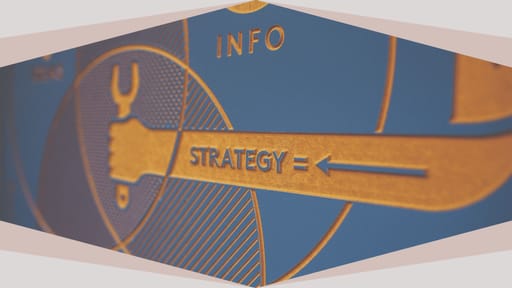An Expert's Blueprint for Remote-First Success: Clear Expectations + Closer Connections

by Darcy Marie Mayfield

Darcy Marie Mayfield is a future of work thought leader and remote experience designer. In these roles, she’s most driven by the idea that “work doesn’t have to suck,” and she has dedicated her career to ensuring that it doesn’t. Darcy was leading remote teams before it was “a thing.” She draws her virtual design architecture from global experiences and cultures, using positive psychology and behavioral science research to align company ecosystems with shared intrinsic values and experiences. Her work has garnered awards from such world-renowned sources as Forbes and Comparably. Connect with her on LinkedIn.
Have you ever had a job where you felt like you always had to be “on call?”
Or perhaps you've worked under a under a leader who seemed to think your personal time was an afterthought and never released “next week’s schedule” in time for you to plan 👏 your 👏 life 👏 ?
Me too. And it sucks!
This shared frustration underscores the rollercoaster ride many of us have been on, navigating the waves of what I’ve dubbed "reactionary remote work." It’s a world where being constantly plugged in often spells chaos for work-life harmony and our overall well-being, draining a whopping 7.8 trillion dollars from the global economy (source: Gallup). It’s high time we recognize that setting crystal-clear expectations isn’t just a savvy move—it’s an indispensable lifeline to fostering a healthier, more productive remote work culture and, by extension, a happier world.
The Importance of Setting Clear Expectations
Setting clear expectations is similar to drawing a map for a journey. It outlines the route, the stops, and the destination. For remote cultures, this means creating a shared understanding of language, work hours, tasks, communication protocols, and performance metrics. This clarity helps in preventing misunderstandings and sets a foundation for accountability and trust. While it may be easier to simply say “Work whenever you want! We hire adults! Figure out what works best for you!” That's a highway to miscommunication, burnout and hours of lost productivity and profits.
Communication: The Heartbeat of Remote Work
Effective communication is the heartbeat of any successful remote team. It involves not only the frequency of interactions but the quality. Open, honest and dedicated communication channels help in aligning team members with the organization's goals and with each other. At the end of the day, communication is about making the implicit, explicit—ensuring that everyone knows what’s expected of them and when. Words make worlds in remote cultures, so ensuring all expectations are set with clearly outlined mental models should leave little room for possible misinterpretation.
The Role of Leadership
Leaders play a pivotal role in setting these expectations. Folks need to lead by example—demonstrating a commitment to the boundaries and standards they set. This includes respecting off-hours, encouraging breaks, and recognizing the signs of burnout. Don’t be that leader who goes on vacation and then sits by the pool on slack all day (you know who you are).

Flexibility Within Structure
While setting clear expectations is crucial, flexibility within that framework is equally important. Recognizing that each team member has unique circumstances and working styles can lead to more tailored and thus more effective work arrangements. This flexibility can enhance job satisfaction, productivity, and ultimately, loyalty to the organization. Think about flexibility like an olympic swimming pool, if you know where your lanes are, you’ll get to the finish line a lot faster.
Tools and Resources
Technology itself doesn't solve problems; how you use it does. Leveraging the right tools and resources can aid in setting and meeting expectations. Whether it’s project management software, communication platforms, or digital workspaces, every tool you work with should facilitate collaboration, not complicate it. Often, it’s not even about choosing the right tools, it’s simply about codifying how you use the tools you already have. The goal should be to do more with less and not adopt a tool to band aid the root of a problem.
The Outcome
When clear expectations are set, communicated, and met, the outcome is a more engaged, motivated, and productive team. Employees who understand their roles and responsibilities are more likely to take ownership of their tasks, innovate, and contribute to the organization's goals. Moreover, a culture that values clear expectations and open communication is more resilient, adaptable to change, and prepared for the challenges of the digital age.
Turn information into action
Before your brain decides to turn into a bowl of spaghetti at the mere thought of all the things you “should do” to make your remote culture work better 🤪 - let’s hit pause. You don’t need to work harder than you have to. Nor should you!
That’s why I crafted The S.H.I.F.T System, a straightforward framework and playbook designed to help you sketch out a robust blueprint for your company. The 'S' in S.H.I.F.T? It literally stands for Setting Clear Expectations — laying the groundwork for a remote-first culture that respects personal time and boundaries (what a thought!)
Peek into The S.H.I.F.T System and snag it at a 10% discount with the code WRKFRCE10 by March 31. Inside, you’ll find everything you need to transform those old on-call slack ding nightmare days into a well-oiled remote work machine: practical templates, easy-to-follow fill-in-the-blank exercises, and detailed guides that have practically done the homework for you.
The shift into remote-first success isn’t about adding to your workload. It’s about doing less, better, ensuring you and your team can say goodbye to uncertainty and hello to a streamlined, engaging remote work environment.
If you’re ready to shift from being reactive to proactive, let’s get started. Your journey to a clearer, more connected work culture begins now.










